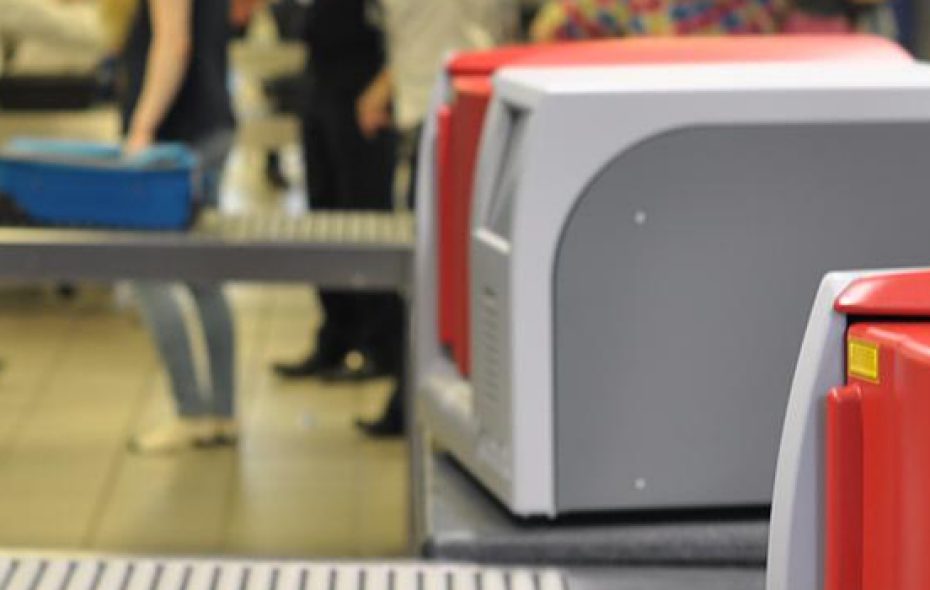
Tue, 17/01/2012 - 12:26
Cobalt Light Systems has received European approval for its revolutionary INSIGHT100 bottle scanner, which enables aircraft passengers to carry liquid items larger than 100ml once more. Airports could now allow passengers to take items such as water, cosmetics, perfumes and duty free through airport security channels from as early as 2013. The current ban on items over 100ml in hand baggage can only be lifted when airports are able to effectively screen quickly and without opening the containers. INSIGHT100 screens individual bottles in less than 5 seconds to determine whether there is a security threat.
The INSIGHT100 scanner exceeded the European Civil Aviation Conference (ECAC) standard for use at airports with an almost perfect detection capability and negligible false alarm rate in unopened containers, ensuring maximum safety for the travelling public with the minimum delays. What makes INSIGHT100 special is the capability of identifying explosives unambiguously inside opaque bottles such as coloured plastic shampoo containers, or green glass wine bottles. Other systems do not precisely identify the threat reliably and may lead to large numbers of false alarms or to missing genuine threats. The system is currently in trials at several major airports.
The INSIGHT100 system uses a proprietary technology called Spatially Offset Raman Spectroscopy (SORS), which was pioneered at the Central laser Facility of the Science & Technology Facilities Council’s (STFC) Rutherford Appleton Laboratories in Oxfordshire, and led to the creation of Cobalt Light Systems as a spin out of STFC.
Dr Paul Loeffen, Chief Executive Officer of Cobalt Light Systems, said: “We have worked incredibly hard over the last couple of years to refine the SORS technology and bring the INSIGHT100 to market. It is a great achievement to have exceeded the European standards at this stage so that we are in a prime position to supply this unique bottle screener to European airports”. The development of the INSIGHT100 was funded under the Innovative Research Call in Explosives and Weapons Detection (2010) initiative, a cross-government programme sponsored by a number of government departments and agencies under the CONTEST strategy.
Prof. Pavel Matousek, at STFC’s Rutherford Appleton Laboratory, and inventor of the SORS technique said: "Since STFC made the breakthrough in discovering SORS a few years ago, we have worked closely with the team at Cobalt Light Systems to develop and refine this technology. It is particularly exciting to see how this particular scientific development could now go on to make a real difference to the safety and wellbeing of our society.”
The restriction on liquids was introduced following a failed al-Qaeda bomb plot in August 2006 to bring down several airliners departing London for North America – the terrorists aimed to use liquid explosives carried onto aircraft in bottles. Recently, the European Commission agreed to relax the limit on liquids by introducing new screening measures from April 2013. In just over a year from now, passengers will again be allowed to carry on that expensive bottle of champagne as a gift for friends, provided the bottle is screened.
Notes:
Cobalt Light Systems
Cobalt Light Systems is an early-stage company based in Harwell, Oxfordshire which was set up to exploit technology spun-out from the Science and Technology Facilities Council Rutherford Appleton Laboratories. Specifically, the technologies are laser-based spectroscopies which enable the precise characterisation of materials, even behind barriers, such as inside an opaque plastic or glass bottle. The company currently also produces and sells instruments using its proprietary technology into the pharmaceutical industry as well as for biomedical research. The company is backed by Oxford Technology Enterprise Capital Fund and UKI2S Partners, as well as angel investors.
ECAC
European Civil Aviation Conference.This organisation of 44 European Member States is an integral part of the ICAO global air transport family and deals with all aspects of civil aviation.
The ECAC Common Evaluation Process of Security Equipment (CEP) applies to Explosive Detection Systems (EDS), Liquid Explosive Detection System (LEDS), and security scanners. Laboratory tests of EDS, LEDS and security scanners are conducted at various Participating Test Centres located in ECAC Member States with the objective of determining whether the tested equipment meets the required ECAC performance standards.
The CEP Management Group, which consists of national authorities contributing to the Process, analyses the test reports provided by the Participating Test Centres; where the equipment is evaluated as meeting an ECAC performance standard, the test reports are communicated to the ECAC Member State signatories to the CEP Administrative Arrangements. Today, forty-three ECAC Member States are signatories to these Arrangements.